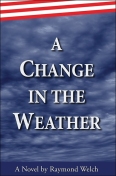It’s interesting to be living in the first reel of a disaster movie.
I’m not sure how to act, though. In the cool dark of the theater, it’s quite acceptable—expected, even—to feel the flutter of anticipation at the prospect of seeing people killed in cruel and unusual ways. Evidently, death is entertaining. Of course, we’d never admit this. But we all know we’re in front of the screen to indulge a vicarious impulse that has more in common with the gut thrill of porn than we’d like to think. We’re not watching 2012 for the subtle character explorations.
Most of us require a dash of catharsis to let us off the guilt hook. Enter the hero. Somehow, he or she prevails over malign forces despite all odds, whether by solving the science puzzle or leading a small band of survivors to a new beginning. Thus we have our reassuring moral message: individual courage and pluck overcome calamity. That moral lesson itself is vicarious. Each of us could be that hero, yes, indeed.
But when you’re actually in the middle of the action, when you’re not in front of but inside the screen, things are different. Individual courage and pluck seem dwarfed by the problem. The idea that you personally could rescue humanity is, to put it mildly, delusional. It’s a fantasy that many people cling to, even if they tell you they know it’s just a story. Stories are psychologically powerful and insidious. That’s why political parties are so interested in constructing a “narrative.”
A more practical focus would be organizing the collective effort required to avoid the crisis. But organizing is the opposite of heroic. No biceps, no martial arts moves, no flaming weapons, no snappy dialog. It’s a grind. It requires a lot of boring talk and its object is not to defeat an enemy, but to change society. That is, ourselves.
We’re not very good at that. In fact, attempting to build such a change calls forth heroes to oppose it. That’s how assassinations happen. Some would-be Rambo with a gun “saves” humanity by taking out the menace who is trying to reform society. Think of Gandhi, JFK, RFK, MLK.
So, as we live through this first reel of Goodbye Holocene, I’m not feeling that sneaky, delicious thrill of vicarious anticipation. I don’t foresee Bruce Willis bungeeing in with some magic technology that will absorb all the excess carbon dioxide in the atmosphere, or Will Smith blasting the alien invaders who our altering our climate. The world in which the hero model made sense—the world of tribes, distance, and time, the world before the Industrial Revolution and globalization—hasn’t merely passed. It has inverted. Heroism won’t simply fail, it will hasten the end.
A hero needs an enemy. The hero model reduces structural complexity to personification and human agency. That worked for King Arthur, when the world was simple and individual men drove most of what happened in it. But it won’t work for us. As the weather gets weird and things get desperate, the self-appointed heroes are likely to be the Jared Loughners and the Timothy McVeighs, the delusional saviors of a world that exists only in the romance of mythology.

